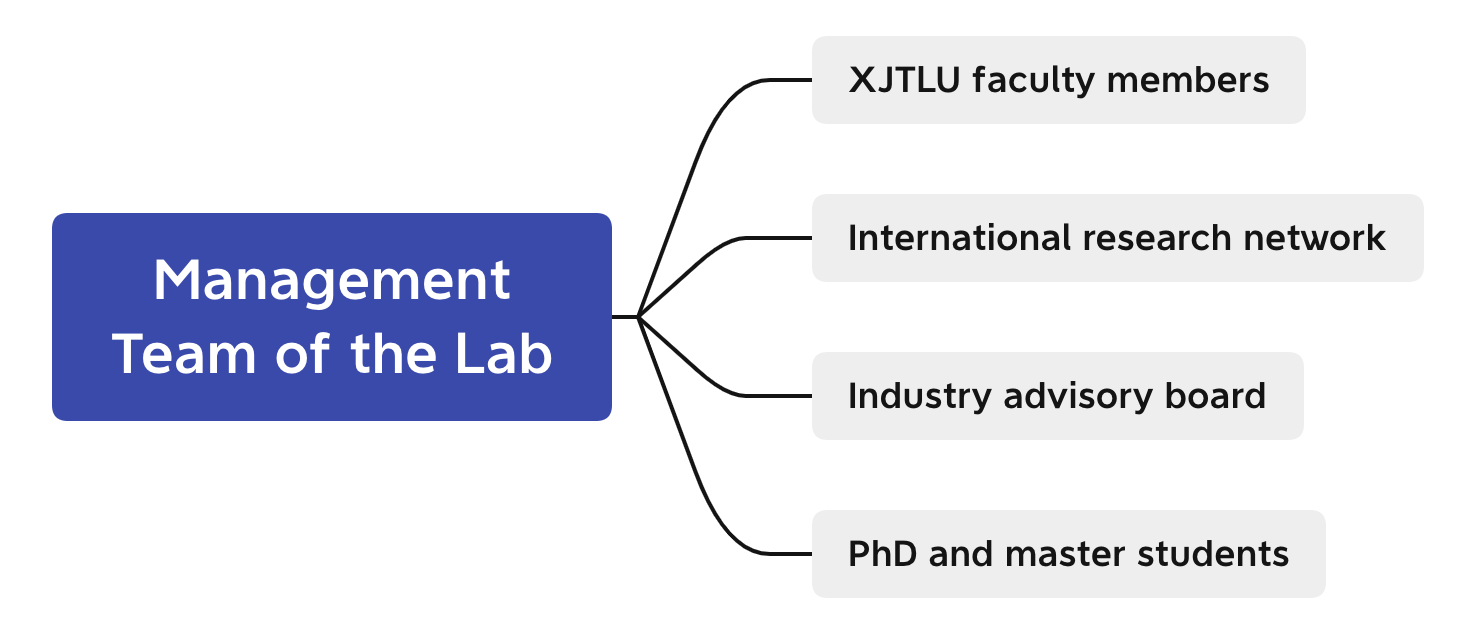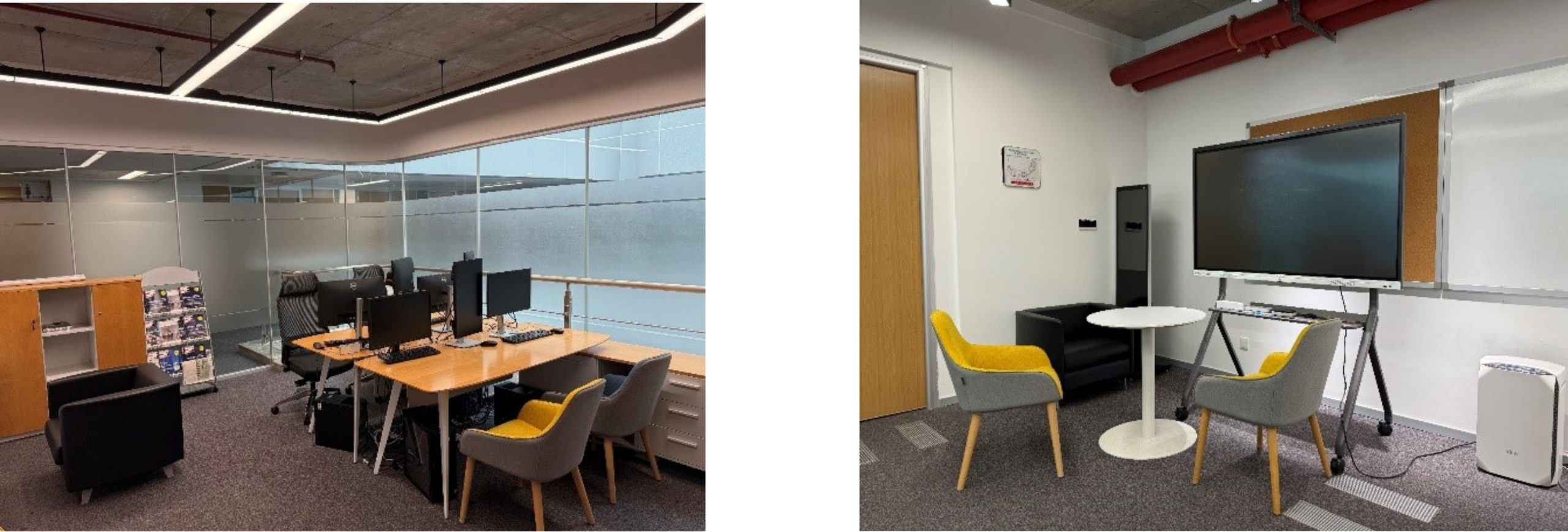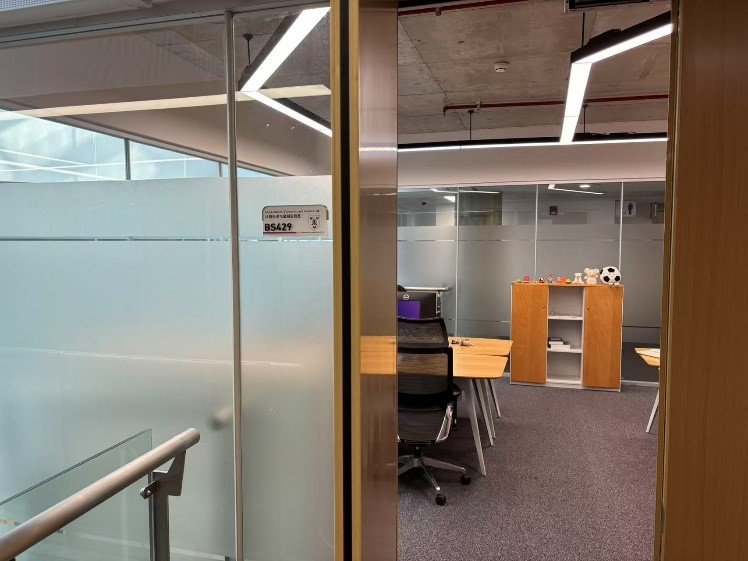As a research-oriented international business school, IBSS excels in various fields including management, economics, accounting, and finance.
IBSS Research Centres of Excellence (RCEs)
IBSS Research Centre of Excellence (RCE) – Sustainability and ESG was established in 2024 at International Business School Suzhou (IBSS). Drawing on IBSS’s strengths in international expertise, industry engagement, and sustainability branding , the RCE seeks to advance research on the role of businesses in achieving sustainability. The RCE actively conducts interdisciplinary research on sustainable development and ESG (Environmental, Social, and Governance) both within China and internationally , integrating resources from government agencies, industry associations, universities, NGOs, and enterprises. Its primary objectives are to establish a collaborative platform for stakeholders with shared research interests, to foster high-quality theoretical rooted in business realities, and to translate research findings into practical business solutions for the broader business community. Additionally, the Sustainability and ESG functions as a communication hub to exchange best practices in sustainability and ESG from both China and overseas. Members of Sustainability and ESG have initiated collaborative research projects with esteemed institutions such as the European Research Council, the New Zealand-China Food Protection Network, and the Economic Research Institute for ASEAN and East Asia.
Emerging Technologies and Innovation aims to establish a leading platform for emerging technology and innovation in business research. By leveraging the strengths of scientific research output, education, and industry resources, we are committed to fostering innovation and the application of cutting-edge technologies across interdisciplinary fields.
Decision-Making in Business has been established with the mission to provide a dynamic platform for academic exchange and collaboration among faculty and students within IBSS. Our primary objectives are to foster an enriching academic environment, to encourage interdisciplinary research, and to establish strong connections with both the academic community and the industry. We aspire to become a leading hub for academic excellence and innovation, contributing significantly to both the scholarly community and the business industry.
Data Analytics and Modelling envisions a future where data-driven insights and advanced modelling techniques are integral to research excellence and innovation. We aim to be pioneers in leveraging data analytics to transform teaching, learning, and research within the school and to contribute to the broader educational and business community.
Business Education Research aims to work across disciplines to address complex and important issues in business education, ensuring that those who receive and deliver business education are at the core of such research. The Centre brings together knowledge experts from diverse disciplines to develop business cases and to understand and explore the challenges facing business education. The overarching aim of the Centre is to identify, understand, and address issues in business education from multiple and diverse perspectives, including but not limited to pedagogy, learning outcomes, curriculum development, the learning environment, and stakeholder perspectives on teaching and learning.
Examples of our Impactful Research
Over the past eight years (2018-2025), IBSS academic staff have published a number of research papers in the following top-tier ABS4/ABDC-A* journals:
- Accounting Auditing and Accountability Journal
- American Journal of Agricultural Economics
- British Accounting Review
- British Journal of Management
- Decision Support Systems
- Education and Information Technologies
- Energy Economics
- European Accounting Review
- European Economic Review
- European Journal of Operational Research
- Human Resource Management
- Industrial Marketing Management
- Information & Management
- Information Systems Journal
- Information Systems Research
- International Journal of Information Management
- International Journal of Operations and Production Management
- Journal of Applied Psychology
- Journal of Banking and Finance
- Journal of Business Finance and Accounting
- Journal of Construction Engineering and Management
- Journal of Corporate Finance
- Journal of Econometrics
- Journal of Economic Behavior and Organization
- Journal of Economic Dynamics and Control
- Journal of Financial Econometrics
- Journal of Financial Intermediation
- Journal of Financial Markets
- Journal of Health Economics
- Journal of Management Studies
- Journal of Money, Credit and Banking
- Journal of Occupational and Organizational Psychology
- Journal of Operations Management
- Journal of Organizational Behavior
- Journal of Politics
- Journal of Retailing
- Journal of Risk and Uncertainty
- Journal of the Academy of Marketing Science
- Journal of the Association for Information Systems
- Journal of Travel Research
- Journal of Vocational Behavior
- Journal of World Business
- Management Science
- Manufacturing and Service Operations Management
- Organization Studies
- Personality and Social Psychology Bulletin
- Production and Operations Management
- Research Policy
- Review of Finance
- Risk Analysis
- Social Science and Medicine
- The Economic History Review
- Tourism Management
- Transportation Research Part A: Policy and Practice
- Transportation Research Part E: Logistics and Transportation Review
- Urban Studies
Over the past eight years (2018-2025), IBSS academic staff have presented their research at elite conferences, with these including but not limited to:
- Academy of International Business – UK and Ireland Chapter Annual Conference
- American Economic Association Annual Meeting
- American Marketing Association (AMA) Summer Academic Conference
- Annual conference of Academy of International Business (AIB)
- Annual conference of Academy of Management (AOM)
- Annual conference of Strategic Management Society (SMS)
- Asian Meeting of Econometric Society
- China Meeting of the Econometric Society
- Chinese Economists Society (CES) Annual Conference
- Econometric Society European Winter Meeting
- EURO Conference (The Association of European Operational Research)
- European Accounting Association Annual Congress
- European Economic Association (EEA) Meeting
- European Financial Management Association (EMFA) Annual Meeting
- North American Summer Meeting of the Econometric Society
- Production and Operations Management Society (POMS) Annual Conference
- Royal Economic Society Annual Conference
- The INFORMS Annual Meeting
- The INFORMS Marketing Science Conference
- The POMS International Conference
- The POMS-HK International Conference
Research Institutes and Centres
In early 2017, Xi’an Jiaotong-Liverpool University established the Operational and Supply Chain Excellence Institute (OSCE) to proactively deliver technological and management solutions that support economic and social development.
The OSCE’s research is centered on designing, testing, and implementing innovative strategies that enhance business operations and foster competitive advantage. By leveraging its strong network of partner companies, the Institute is strategically positioned to collaborate with a diverse array of industrial stakeholders within Suzhou Industrial Park.
Its mission is to develop adaptable, high-impact solutions tailored to the needs of various industry sectors and associated services. Ultimately, the OSCE aims to position the region as a leading center of excellence, capable of attracting and supporting a broad spectrum of enterprises.
Research areas and interests:
- Supply chain management focusing on sustainability
- Supply chain finance
- Operation management and optimization
- Intelligent logistics and transportation
Structures and Functions:

For more information on theOperational and Supply Chain Excellence Institute (OSCE), please visit the dedicated website here.
The Society for the Advancement in Economic Studies (SAES) aims to become one of the leading economic studies research institutions in China, with its mission to provide an interdisciplinary research platform bringing together scholars, business community and policy makers to understand, debate and solve the practical problems related to economics.
Economics is a broad discipline with specialisation in various fields of microeconomics and macroeconomics. There is a growing consensus on the need to amalgamate various aspects of economic studies to better understand and solve problems within specific economies and the world as a whole. Moreover, in today’s integrated and interconnected world, other social science disciplines have applied ideas and methodologies found within economics and become crucial to effective and integrated economic policy formulation.
It is the goal of SAES to apply the economics toolbox both to overlapping internal fields and neighbouring disciplines, thereby taking advantage of synergies across the social sciences and stimulating the generation of new knowledge. The research activities and outcomes of the society are expected to contribute to policy creation, and to this end the society organises annual conferences inviting scholars from across the world to present papers on a wide variety of subject areas.
Building on a solid research foundation and wide network of academics and industry leaders, the Smart Mobility Analytics Centre (SMAC) was established at IBSS in May 2022. The vision of SMAC is to be a leading platform on smart mobility analytics that will synergise the insights and needs of academic research, industry and education. The SMAC’s strategic objectives are to (a) Promote interdisciplinary and cutting-edge academic research on smart mobility analytics, (b) Establish close collaborative relationships with companies in the mobility sector, and (c) Explore opportunities to contribute to the school’s executive education programmes, as well as undergraduate/postgraduate student projects in the domain of mobility and transport. The SMAC consists of more than 30 members, with these including IBSS faculty and postgraduate students, non-IBSS XJTLU faculty and students, international researchers from the Centre’s research network, and industry advisors. For more information on the SMAC, please visit the dedicated website here.
The IBSS Biometrics Laboratory, located in BS315, is equipped with state-of-the-art facilities designed to measure a range of physiological and cognitive responses, including emotions, eye movements, skin conductance, and brain activity. Biometrics enables researchers to better understand the neuro-physiological-psychological mechanisms underlying human behaviour – what individuals do and why they do it. The laboratory supports and welcomes interdisciplinary research collaborations.

For more information on the IBSS Biometrics Laboratory, please visit the dedicated website here.
The IBSS Experimental Economics Laboratory, located in BS294, is equipped with 45 desktop computers integrated with webcams. The facility maintains a participant pool managed through the Online Recruitment System for Economic Experiments (ORSEE). Over the past few decades, experimental economics has emerged as one of the most successful and rapidly evolving subfields of economics. It employs controlled experiments to investigate human behaviour, test economic theories, and develop innovative models that incorporate psychologically plausible foundations. Researchers in the laboratory can design diverse experiments aligned with their academic interests. Students participating in experiments make economic decisions within simulated environments and receive monetary rewards contingent on their strategies. For pedagogical purposes, classroom-based experiments are particularly effective in elucidating complex concepts such as individual decision-making, firm strategy, and economic game theory. Aligned with research-led teaching, students may also utilise laboratory experiments for dissertation projects to deepen their research capabilities.

For more information on the IBSS Experimental Economics Laboratory, please visit the dedicated website here.
The Digital Accounting Laboratory (DALab) serves as a research hub dedicated to exploring how cutting-edge artificial intelligence (AI), data analytics, and automation can transform accounting, finance, and related fields. DALab bridges academic theory and industry practice through the development of advanced analytical tools, applied research with industry relevance, and experiential learning programmes for students and faculty.

For more information on the Digital Accounting Laboratory, please visit the dedicated website here.
The Computational Economics and Finance Laboratory provides dedicated computational resources for teaching and research activities within IBSS. Located in BS429, the facility is equipped with four Dell OptiPlex 7000 desktops – three configured with 32GB DDR4 RAM and one with 128GB DDR4 RAM. These systems enable local processing of small-scale computationally intensive tasks within IBSS, eliminating the need to apply for centralised computing resources. Faculty members may access the laboratory via staff ID cards and log into terminals using university credentials. Additionally, PhD candidates, master’s students, and participants in the Summer Undergraduate Research Fellowship (SURF) or Final Year Project (FYP) programmes may access the facility with supervisory approval.

For more information on the Computational Economics and Finance Laboratory, please visit the dedicated website here.





